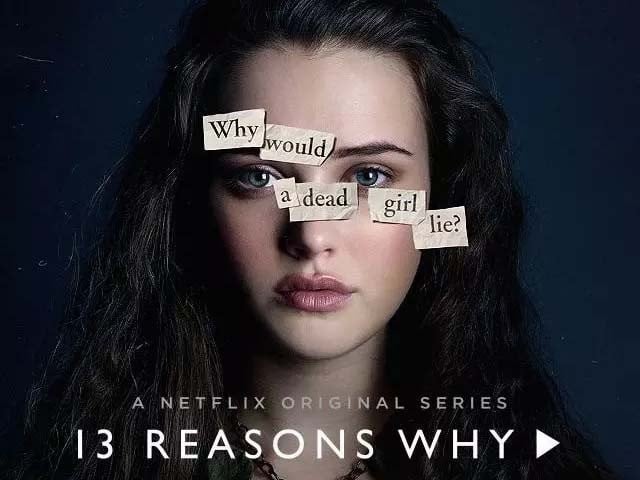'13 Reasons Why' linked to uptick in adolescent suicides: study
There was a 13% spike in suicides among 10 to 19-year-olds between April and June of 2017

PHOTO: NETFLIX
The latest paper, which was published in JAMA Psychiatry on Wednesday, estimated a 13% spike in suicides among 10 to 19-year-olds between April and June of 2017, with a higher proportion among females.
It drew on the same data from the US Centers for Disease Control and Prevention (CDC) as another paper with similar findings published a month ago in the Journal of the American Academy of Child and Adolescent Psychiatry.
 Every moment leading up to Hannah's suicide is a moment too late. PHOTO: FACEBOOK.
Every moment leading up to Hannah's suicide is a moment too late. PHOTO: FACEBOOK.That study estimated an additional 195 suicide deaths -- an increase of nearly 29% -- among 10- to 17-year-olds in the nine months after the show's release.
The new research was conducted by a team led by Thomas Niederkrotenthaler of the Medical University of Vienna's Center for Public Health.
"The associations identified here must be interpreted with a substantial degree of caution, but they do appear to demonstrate an increase in suicides that is consistent with potential contagion by media," they wrote.
The team looked at suicides from 1999 to 2017 to establish a model that controlled for variables such as seasonal variations, like known spring peaks in adolescent suicides.
 PHOTO: ENTERTAINMENT WEEKLY
PHOTO: ENTERTAINMENT WEEKLYSince Netflix does not publicly share its viewership data, the researchers established a proxy to estimate its popularity via the buzz the show generated on social media platforms Twitter and Instagram, which is especially popular among US youths.
The show was released on March 31, 2017, and generated some 11 million tweets within the first three weeks alone, before tailing off.
"Because of the absence of social media attention after June 2017, we defined the exposure window as April to June," the researchers wrote.
The estimated 13.3 percent increase in deaths corresponds to 94 more suicides for the age category than would otherwise be expected over the time period.
 PHOTO: NETFLIX
PHOTO: NETFLIXThe proportion was higher among girls, which the authors attributed to the show's focus on the suicide of 17-year-old student Hannah Baker.
No similar increase in suicide was seen among the other age groups.
The authors cautioned that the research's reliance on so-called "ecological data" - that is to say, estimates based on proxy measures - was a limitation, noting "it was not possible to ascertain whether the excess suicide decedents had actually watched 13 Reasons Why."
 PHOTO: NETFLIX
PHOTO: NETFLIXNetflix said in a statement, "Experts agree that there's no single reason people take their own lives - and that rates for teenagers have tragically been increasing for years." The company added that it was difficult to extract causality for spikes, including increases seen among girls in November 2016 and March 2017, which both predated the show.
A study commissioned by Netflix and carried out by Northwestern University last year found that a majority of teens said the show helped them understand depression better and empathize with victims of bullying.



















COMMENTS
Comments are moderated and generally will be posted if they are on-topic and not abusive.
For more information, please see our Comments FAQ